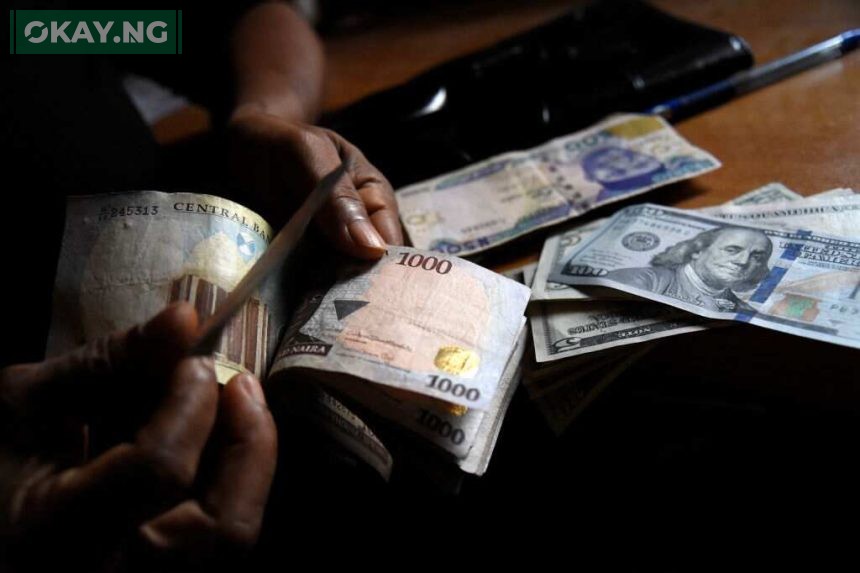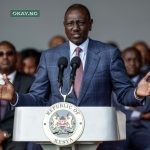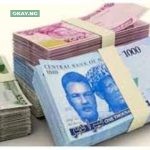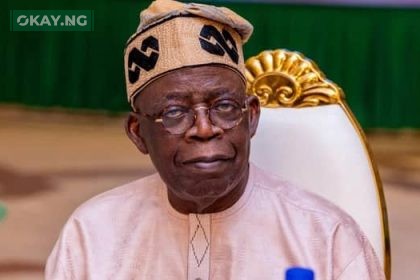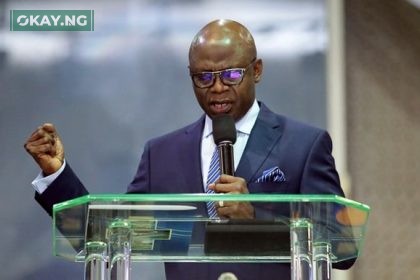The Dollar to Naira exchange rate is a critical economic indicator that affects nearly every aspect of life in Nigeria — from the cost of living and business operations to foreign investments and remittances. On April 1, 2025, the Central Bank of Nigeria (CBN) has released the official exchange rate, which guides how banks, financial institutions, and government agencies transact in foreign exchange.
In this article, Okay.ng explains the current USD/NGN exchange rate, how the CBN manages the forex market, and the economic implications of this rate.
Why the Dollar to Naira Exchange Rate Matters
Understanding the exchange rate between the US dollar (USD) and the Nigerian naira (NGN) is essential because:
- It influences import and export prices
- Affects the cost of fuel, food, electronics, and raw materials
- Determines foreign investors’ confidence
- Impacts Nigeria’s external reserves and inflation rate
How the CBN Manages the Exchange Rate
The Central Bank of Nigeria (CBN) plays a key role in maintaining the stability of the naira. Here’s how:
1. Managed Float Exchange Rate Regime
The CBN uses a managed float system, which allows the naira’s value to fluctuate based on market demand and supply while intervening when necessary to curb volatility.
2. CBN Intervention
The CBN occasionally injects foreign currency into the market to prevent excessive depreciation or to defend the naira during shocks.
3. Multiple Forex Market Segments
The CBN operates various windows to distribute forex more effectively:
- Official Window – For government and large institutional transactions
- Investors & Exporters (I&E) Window – For market-driven transactions by businesses and investors
- Interbank Window – For commercial banks and authorized dealers
- Bureau de Change (BDC) Window – For small-scale personal and business use
Today’s Official CBN Dollar to Naira Rate – April 1, 2025
Below is the CBN official exchange rate for the US dollar to the Nigerian naira as of Monday, April 1, 2025:
| Currency | Buying Rate (₦) | Selling Rate (₦) |
|---|---|---|
| USD ($1) | ₦1,520.00 | ₦1,542.00 |
Note: These rates apply to CBN official transactions and may differ in the parallel or black market.
Factors Affecting the Exchange Rate in 2025
Several domestic and international factors influence the USD/NGN rate:
Demand & Supply of Foreign Currency
- High demand for USD for imports or school fees abroad can push rates up.
- Limited forex supply, especially from crude oil exports, weakens the naira.
Inflation & Interest Rates
- A high inflation rate in Nigeria reduces the naira’s purchasing power.
- Attractive interest rates in the US increase demand for USD investments.
Government Fiscal Policies
- Budget deficits, borrowing, and spending patterns affect forex inflows and confidence.
Global Market Conditions
- Fluctuations in oil prices (Nigeria’s main forex earner) significantly affect forex reserves.
- Global economic shocks, such as conflicts or pandemics, can disrupt markets.
Comparing CBN Rate with Other Market Segments
| Market Segment | Estimated Rate (₦) |
|---|---|
| CBN Official Window | ₦1,520.00 – ₦1,542.00 |
| I&E Window | Varies daily based on demand |
| Bureau de Change (BDC) | Higher than CBN rate |
| Parallel/Black Market | Significantly higher |
Rates in unofficial markets may be influenced by speculation, scarcity, and informal demand.
What This Means for Nigerians
- For importers: A higher exchange rate increases landing costs of goods, leading to inflation.
- For students abroad: School fees and living expenses become more expensive when funded from Nigeria.
- For exporters: A weaker naira may improve competitiveness by increasing local earnings.
- For investors: Uncertainty in forex markets may discourage FDI unless exchange rate reforms are enforced.
Final Thoughts
As of April 1, 2025, the CBN has set the USD to Naira rate at ₦1,520.00 (buying) and ₦1,542.00 (selling). While this is the official rate, market conditions, inflation, and fiscal policies continue to exert pressure on the naira.
Nigerians and businesses are advised to monitor both official and parallel market rates and explore forex hedging options when dealing with international transactions.


